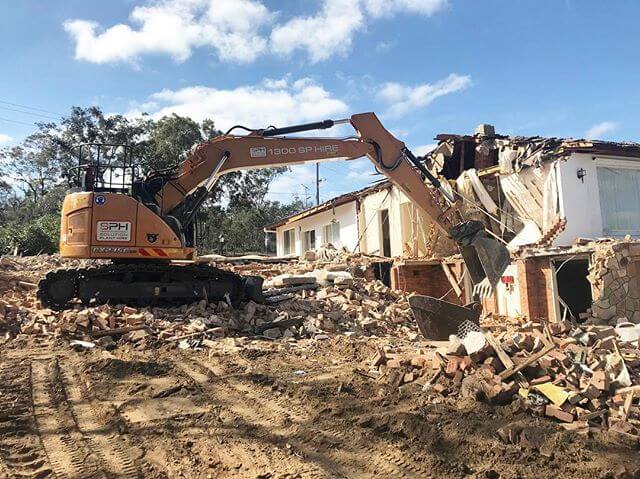If you’re going to make frequent use of an excavator, then purchasing one can be a more efficient use of money than renting one for each and every project. Excavators are both highly reliable and durable, but expensive pieces of equipment to buy new, so in a lot of cases purchasing them second hand makes more sense.
As with all second hand purchases of machines, however, you need to keep an eye out for tell-tale signs that the equipment will be more trouble than it’s worth. When inspecting a potential second hand excavator purchase, these are the key things to look out for.
1. An engine that creates a lot of smoke when it starts
This might sound like a no-brainer, but engines that create a lot of smoke are a concern; replacing or repairing an engine that far gone can cost more than buying a new excavator. It’s also important to test every function of the machine, and every speed, to see if at any point the stress on the excavator causes the engine to smoke up.
2. Cracks and dents
Excavators work in difficult, stressful conditions, therefore the integrity of the equipment is critical. Cracks or dents on any of the load-bearing elements of an excavator (such as the boom, stick or bucket) can be a sign that the overall machine’s structural integrity has been compromised, and this in turn can mean that the equipment will need replacing. Pay special attention to key connection point welds; those will often be the ones to show damage to the structure first.
3. Leaks in the hydraulics
Make sure you thoroughly inspect all cylinders, hoses, and lines for leaks, as well as the hydraulic pump. If there is a leak, it’s not necessarily a sign of a defective machine; hydraulics do wear down over time needing maintenance and replacement, and will continue to run fine afterwards. But if there is a leak it will need to be repaired sooner rather than later.
4. Confirm the validity of the hours meter
It’s critical that an excavator’s log hours are used properly, so be sure to check the hours meter before buying an excavator. Unfortunately, hour meters are not tamper proof, but if there’s any question about the validity of the meter, you can also check the control pedals. If there’s a high amount of wear on the pedals, chances are that the hours meter is either non-operational, or has been tampered with. If contact with the previous owner is an option then try and get as close to an exact idea of how often it was used, on what kind of projects, and how old it is.
5. Tracks and tires
As a safety priority, an excavator’s tracks (or tires if they have them) should be examined very closely. Signs that an excavator’s tracks may require replacement include:
- Cracks in the rubber – If the rubber of the tracks is very cracked then it generally means the rubber has been exposed to heat, wear and tear, and potentially being run into curbs.
- The tracks keep losing tension – While loss in tension is to be expected over time, when it reaches the point that tightening to the manufacturer’s recommended tension point does not tighten the tracks sufficiently then the tracks may need to be replaced.
- Lugs are missing.
6. Price
It goes without saying that the price is an important factor, and if the second hand excavator’s price is being set too low, the chances are that there will be something very wrong with it. One thing that’s important to understand with regards to excavators is that, unlike cars, they tend to hold their value well. Prices can still vary wildly depending on the condition of the machine, how many hours it has been used for, and the attachments being sold with it, but as a rule of thumb, for a good quality excavator, expect to spend a greater percentage of the machine’s value when new than were you to buy a second hand car.
7. Availability of replacement parts
Older excavators face an additional challenge; if they break down, the parts required to repair them could no longer be available. Again to compare to cars – cars are produced in much greater quantities, and so the parts for cars are produced in much greater quantities, and it’s easier to source replacement parts for a longer period of time after a model of car stops being manufactured. For excavators, manufacturer support is that much more critical to research before purchasing a machine.
Don’t rush into into a second hand excavator
For all of these reasons, it’s important to purchase your used excavator from a reputable source. One that will allow you the freedom to complete a full test drive of the machine, and one that keeps impeccable logs of services and the like. If you’re having trouble, Solution Plant Hire is one such provider. We aim to sell equipment before it reaches the 2,000 hour mark, and given that excavator equipment can be expected to last between 7,000 and 10,000 hours before needing repair, buying a second hand excavator from us will give you many, many hours of work.
For more information on the excavators and other pieces of equipment that we currently have on sale,visit this page. Additionally, if you have any questions, or would like to arrange an inspection and test drive of your own, please don’t hesitate to contact our friendly team.
View Your Excavator Hire Options Below:




